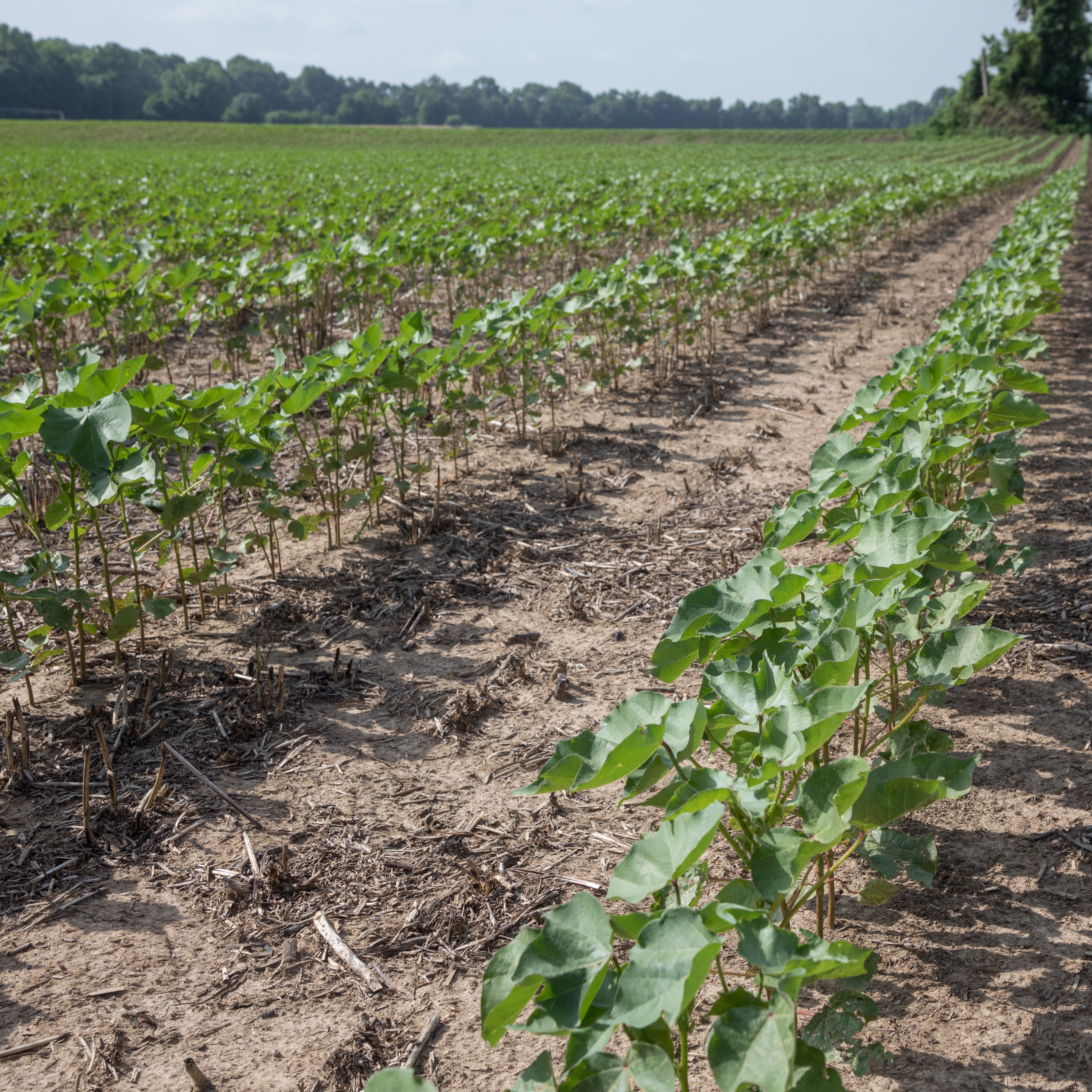Enlist™ Cotton Earns Its Way Onto Southwestern Kansas Farm
In the late 1990s, concerns about water demands on the Ogallala Aquifer prompted Tom Lahey to begin looking for a crop that used less water than corn. He experimented with cotton on his southwest Kansas farm. The results were promising.
The problem for large-scale cotton production was the 200-mile trip to the nearest cotton gin. Lahey and a few neighbors and investors solved that problem by building a co-op gin. Since then, cotton has been Lahey’s main crop.
Still farming land that his Irish ancestors settled in 1888, Lahey continues to grow corn, hard red winter wheat and milo. He also runs a small cow-calf operation. About 60% of the land is irrigated due to low annual rainfall.
“We get an average of 17 inches per year,” Lahey says. “Most years it seems less than that.”
Lahey strip tills all his row-crop acres, deep ripping the soil only rarely.
“We rotate crops, planting hard red winter wheat and following with a spring row crop: cotton, corn or milo,” he says. “Some acres are left fallow for a summer.”
Because area farmers were using 2,4-D esters to kill weeds after wheat harvest, several farms in the area stopped raising cotton. That changed with the availability of PhytoGen® cottonseed with the Enlist™ trait. It allowed farmers to raise cotton without worrying that 2,4-D ester drift would damage the crop. It also gave them a new tool against tough weeds.
“We tried Enlist cotton, and I haven’t seen a cotton leaf curled since 2017,” Lahey says. “We’ve even sprayed 2,4-D ester on summer fallow fields near our Enlist cotton. We’ve had no issues in the cotton.”
Lahey battles two particularly difficult weeds: kochia and pigweed.
“Weeds are getting tougher and meaner,” he says. “With Enlist cotton, we’re able to use a combination of Enlist One, Liberty and Roundup.” While weed control has been good, Lahey sees the need to improve his preemergence herbicide program.
“We had to make two post passes this year,” he reports. “We need a better pre program. If you miss pigweeds, they can get big fast. We want to be able to use one post pass of our Enlist-Liberty tank mix to control them.”
Cotton works well on Lahey’s operation, and he’s been so successful he’s been named a PhytoGen Horizon Grower. He can grow cotton using 40% of the water it takes to raise a viable corn crop. Each year, the PhytoGen varieties featuring Enlist technology are getting better he says.
“PhytoGen is a very good fit,” he says. “Yields are good for our short growing season and quality is very good. It looks like it could be our highest-yielding variety. And we know more short-season varieties are on the way.”
He says tank-mixing is easy, and so is sprayer cleanout. Plus Lahey has no problems with neighbors’ acceptance of Enlist herbicides: They’re all planting PhytoGen cottonseed with the Enlist trait.
“We’re all fighting the same issues,” he says. “The neighbors aren’t scared of the Enlist system.”
Lahey says adopting the Enlist™ weed control system has been relatively simple. If he has questions, Enlist field specialists and his agronomist have the answers.
“Enlist has been absolutely perfect,” he adds. “I can’t say anything bad about it. Drift has never been an issue with Enlist herbicides.”
